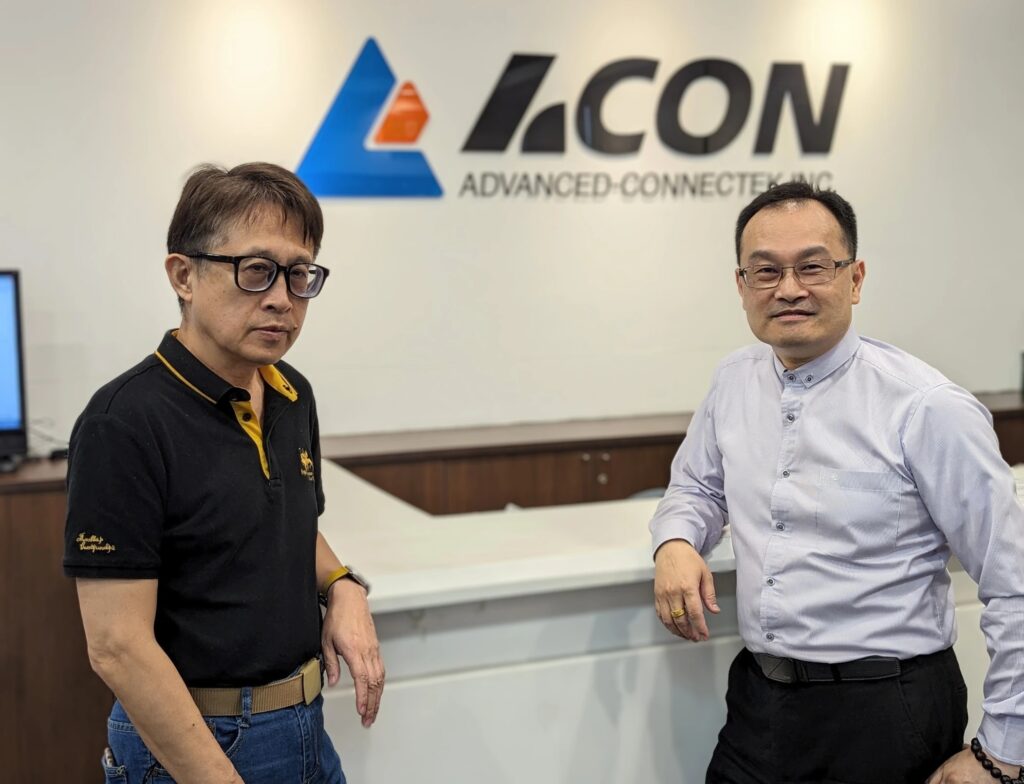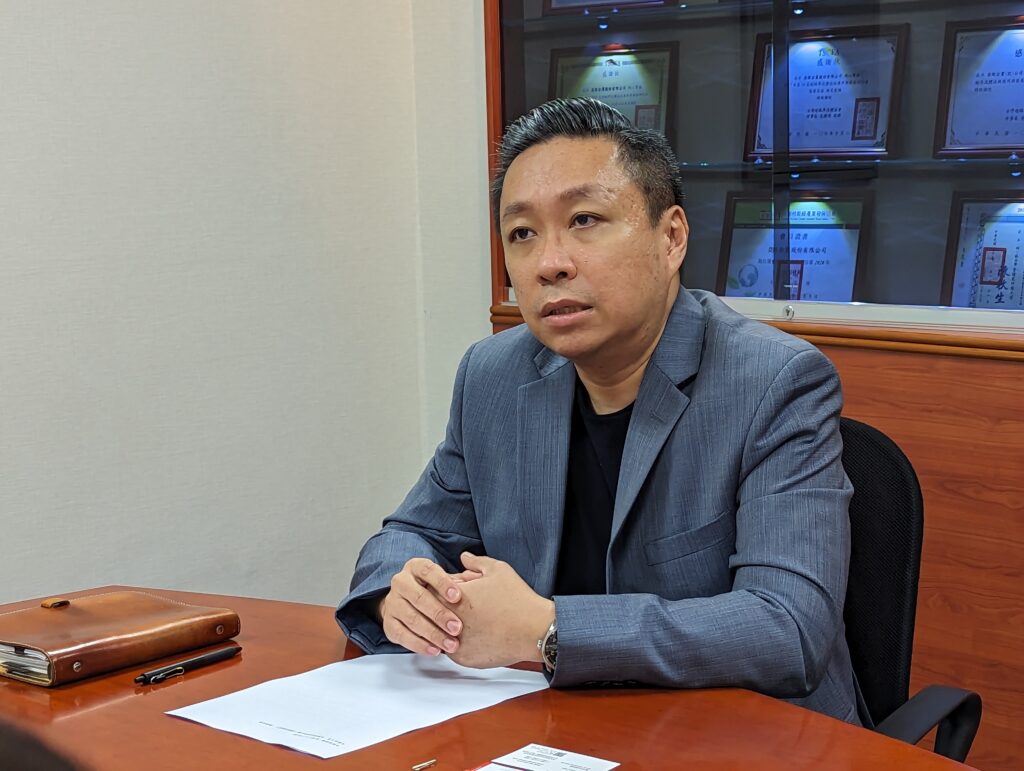BenQ Materials, which has hit a plateau in production and manufacturing, made another breakthrough by introducing the AI automated machine learning software platform (AutoML) from Profet AI. Needs from the start of the research and development to the tail end of production management were holistically addressed, over and above enabling critical factor analysis, simulation of process parameters and rendering formula explorations easier to improve process and production bottlenecks, thereby improving the Company’s competitiveness, it also significantly reduced investment costs and brought about high efficiency.
BenQ Materials Corp. (hereinafter referred to as BenQ Materials), which actively transformed from the industrial materials industry, has successfully ventured into the medical and automotive business from the panel display industry in recent years. Medical products such as medical packaging materials, medical consumables, contact lenses, etc. have grown progressively. New items such as non-woven fabrics and functional PE films have been added to the suite of medical products this year after the acquisition of 51% equity of WEB-PRO Corp. in the fourth quarter of last year, boosting the proportion of revenue. Automotive separator film and automotive PDLC Smart Film have been introduced to the automotive market, and growth is expected in the future for the Company.
Under the strategy of diversified plan of action, besides the expansion of medical and automotive businesses, internally, BenQ Materials has also further reinforced the upgrade of technologies, actively introducing AI applications to increase product yield and optimize management and driving the overall operation performance. Led by the President, several supervisors underwent supervisor courses and set up technical courses in various departments to promote AI. The results have progressively emerged, where on top of the improvement in management performance, there was also a significant reduction in investment costs.
Cost-Effective and High Flexibility AI Tools Paired with In-Depth Domain Knowledge
Saving Eight Figures in Costs Within the Year
Fred Yu, Fred Yu, Factory Manager & AI ProjectManager, TY Factory, Polarizer Production Center, commented that it had only been a short while since the introduction of AI at the plant, and the evaluation only started around 2021, translating to only about two years time span. The key mindset then was to solve production problems. From the perspective of the production line, the aim is to raise First Pass Yield. Fred Yu pointed out that initially, two international brand systems from the United States and Japan were sourced to resolve the issues at the plant, but both systems were pulled off the plug shortly after use. The reason behind this was the discovery of a far more superior system.
Fred Yu candidly remarked, “we found a better product with higher return on investment. Profet AI products were better value for money, had more powerful functions, supported Chinese language options, can address our needs and possessed flexibility for adjustments.” Subsequently, the plant converted to the use of Profet AI and Oracle systems, and to date, more than 20 projects have been successfully implemented through Profet AI.
Fred Yu pointed out the crux of the matter, “the initial two systems were, after all, foreign brands, and it is challenging to adjust many things for one manufacturer.”
From the perspective of investment cost-effectiveness which enterprises place much emphasis on, the initial two systems from the United States and Japan would cost a total of more than NT$20 million a year. Compared with the subsequent Oracle complemented Profet AI replacement system, the latter cost approximately NT$1 million. Topped up with Oracle products, the total investment would amount up to NT$2 million. After trial calculations, Profet AI’s system this year has saved 8-figure costs for BenQ Materials, and the Company is quite satisfied with this achievement.
Fred Yu further elaborated that domain knowledge is the most important thing for manufacturing industry to build AI, but not all AI have domain expertise. For example, accuracy would be low when a large amount of data is fed into the learning model. If there is a lack of domain knowledge, there could be a possibility of caching noise, and without domain knowledge converging, cross-validation will yield differences.
Introduction of AI successfully improved the manufacturing process, broke through the production bottleneck and carried out formula exploration
With the introduction of AI applications, what results have BenQ Materials seen so far? Fred Yu stated, “besides significant improvements in the manufacturing processes, BenQ Materials has also successfully broken through production bottlenecks.” In the past, BenQ Materials used to draw trend charts based on raw data to make informed decisions. With tens of thousands of inaccurate data on hand, it is not possible to draw these charts quickly and accurately solely by manual labor.
In addition, if the production line needs to be switched in a short period of time, the parameters need to be adjusted. The upper and lower limits of the repeated specifications of the former and latter products are very narrow. In the past, only the internal line could be switched, and this process generates a lot of waste, such as the waste of production materials. After importing the AutoML system of Profet AI, the production line adopts a non-cutover method, adjusting the concentration and temperature in advance on the other side, resolving the challenges of low manual operation accuracy, thereby reducing the scrapping of production line materials and improving yield.
Meanwhile, formula exploration was also a project which BenQ Materials benefited tremendously through AI. With so many new products to develop but so little amount of data, Profet AI’s AI tools are able to capture a similar type of data to meet the new specifications required by R&D. To boot, the open architecture of the system supports the usage status of internal and external sites, such as ESG issues such as electricity consumption, temperature, and carbon tax conversion, all of which have been well thought out.
Regular reviews of demand and function
Continuously optimize user experience to achieve win-win goals
Fred Yu said that there are two main considerations for the selection of AI systems for BenQ Materials – the system needs to meet user needs and it needs to be functional. To put it simply, things bought should be practical. The introduction of a new system is best determined by the users. If the introduction is solely led IT, and when IT and the plant production teams fail to communicate effectively, system changes will happen time and again.
One of the important reasons why BenQ Materials initially jumped ship from the original American and Japanese systems to Profet AI is that Profet AI regularly checks which functions need to be modified for customers, and the system meets visualization needs. Fred Yu emphasized that although meeting the demand and the functional needs is very basic, it is actually the most important.
Jonathan Yu, Sales Director at Profet AI, stated that during the collaboration with BenQ Materials, the R&D teams of both parties held functional R&D meetings every quarter. The Profet AI team will evaluate the actual usage needs of BenQ Materials and incorporate the needs into the future product roadmap, including topics such as data inspection, formula exploration and key factor analysis integration, device anomaly detection function optimization, and online AI model management, etc.
Jonathan Yu believes that only by continuously improving and optimizing the functions required by users, designing an operation line that is more suitable for users, and tightly integrating actual manufacturing operation processes and R&D can a win-win goal be achieved.

